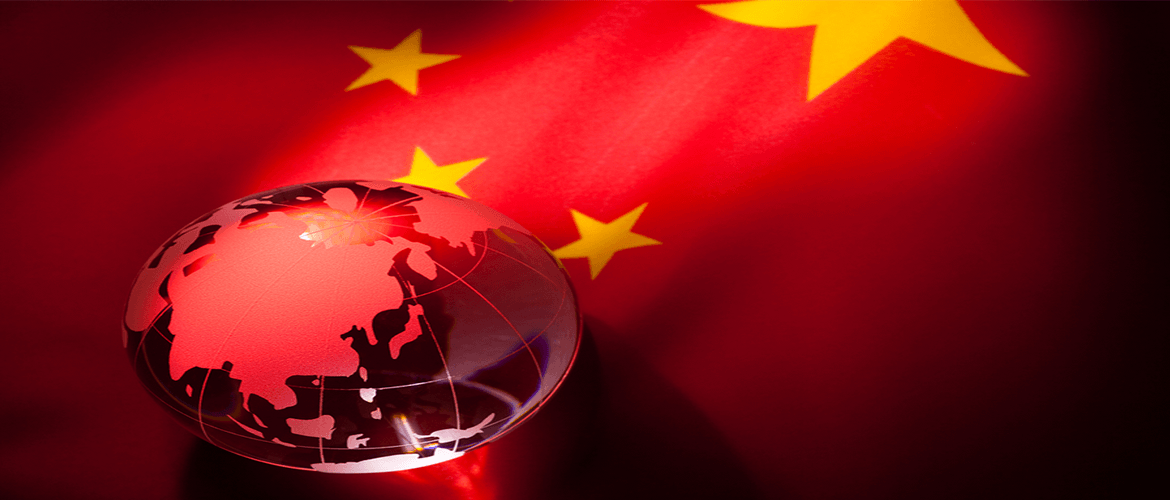Containing the Dragon: Dealing with China
June 29, 2020 | Expert Insights
Richard Fontaine is the Chief Executive Officer of the Center for a New American Security (CNAS). Prior to CNAS, he was foreign policy advisor to Senator John McCain and worked at the State Department, the National Security Council, and on the staff of the Senate Foreign Relations Committee. This article is based on his views during the 12th Synergia Foundation webinar on 'Democracy under the shadow of a pandemic'.
As Chinese manoeuvres on the India-China border and its aggressive tactics in parts of East and Southeast Asia dominated headlines, the focus was on how to interpret these gambits in the international scene. The world is trying to construe what is driving this aggressive behaviour, at a time when a more responsible and cooperative policy should be expected from a rising power with pretensions of global primacy.
While analysing the comparisons being made between a rising Imperial Japan of the 1930s challenging the hegemony of the U.S., with the unmistakable rise of China of the 2020, Mr. Richard Fontaine pointed out the differences in national decision making between the two aspiring powers. The internal decision making in 1930s Japan was much more diffused and fractured. The Shogun Emperor, the Prime Minister, and the army and navy formed different centres of power, leading to a process of collective decision making. In the China of today, however, President Xi Jinping is the pre-eminent leader and holds supreme authority, characterising a far more concentrated form of power and governance.
Another major difference is the role of formal colonialism --- for Japan in the 1930s, the acquisition of Taiwan, Korea, and the push for Manchuria was a strategy to match other imperial powers, acquire colonies and raw materials, form trade blocs, etc. But China has a different strategy of projecting its power outwards by economic rather than military influences in different countries.
DEALING WITH THE DRAGON
Mr. Fontaine suggested how best to engage with China currently. It must include both a ‘carrot and stick’ policy, translating into more realistic efforts to contain the ‘Chinese Giant’. With its BRI, Digital Silk Road and the One Belt One Road policies, China is seeking to effectively push forward an agenda of funding/involvement in developing countries to expand the Chinese sphere of influence. In this scenario, rather than direct confrontation and pushback, countries must be able to offer reasonable alternatives to Chinese investment and other offers of aid, as well as alternatives to technical assistance that China offers. More importantly, a deeper analysis of the long-term consequences, and implications of the contracts that Chinese make with client nations must be widely shared, not only with the concerned countries, but also with the larger global audience.
According to Fontaine, "All democratic systems find the legitimacy of the government in the consent of the governed as measured by periodic elections." Thus, while different countries have varying forms of democracy in the methods, execution and implementation, China, claiming to be a democracy on a par with democratic governments in India, the U.S. or Japan, is thus potentially problematic and has to be addressed.
The pandemic has showcased the failures of political bodies and systems of governance worldwide as well as multilateral institutions such as the United Nations. The biggest threat has been to globalisation, as Mr. Fontaine has tweeted, “Coronavirus won't kill globalisation, but it will transform it. The pandemic will accelerate changes that have long been in motion toward a new, different, and more limited form of globalisation. Globalisation will look very different after the coronavirus pandemic; new barriers are going up at a breathtaking pace. The pandemic will not accelerate the demise of globalisation, but its transformation."
ASSESSMENTS
To engage with Chinese aggression more effectively, a concerted strategy needs to be formulated, considering internal party dynamics in China as well as Chinese ideas of revisionism. This strategy has to include both ‘confrontation and conversation’ with countries developing reasonable alternatives to counter Chinese infrastructural funding efforts in Asia and Africa, and viable options to policies like OBOR and the Digital Silk Road.
Given the failure of the liberal world order and multilateral institutions, 2.0 versions of global cooperation institutions need to be devised to counter rising nationalism and ‘closed-door’ policies, in the pandemic scenario.
The pandemic has begun a call for 'decoupling' from China-centric supply lines which were exposed during the breakdown. While alternatives may not be easy to create to match the competitiveness of Chinese industry in the short term, an awareness to create multiple centres for supply chains, at the cost of profit, is taking root. China gained immensely from globalisation and cannot afford to ignore the degree of seething animosity around the world, which blames Chinese duplicity for the present state of the world.



Comments